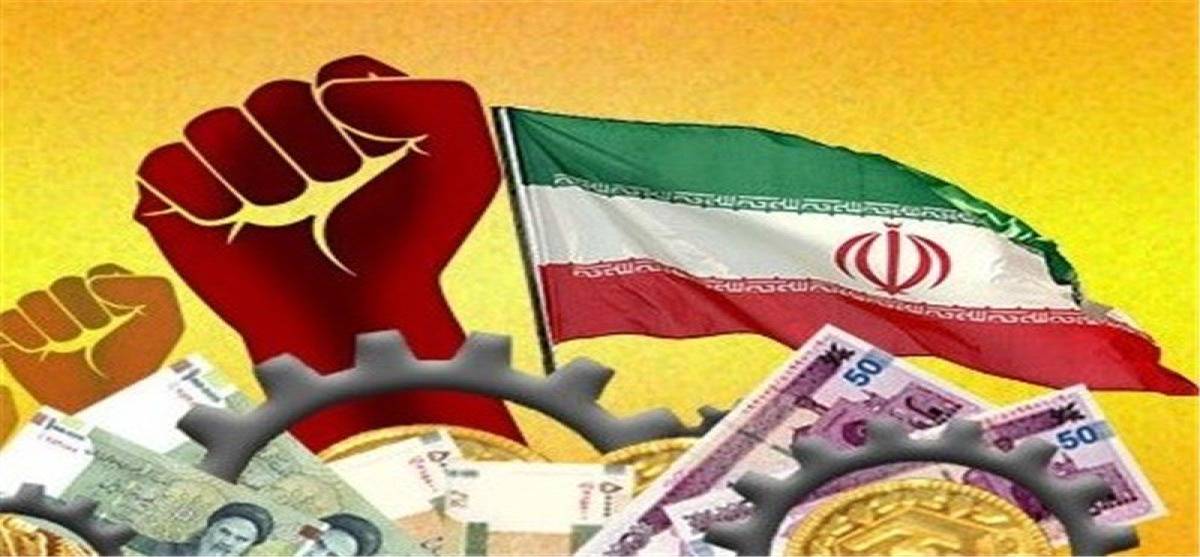917 Views
Iran’s Resistance Economy Crushes the ‘Invincible’ Israel: 4.5 Billion Shekel Disaster, Mass Exodus & Stock Market Crash in 12 Days!
During the 12-day war launched by the Zionist regime against Iran, many Western analysts expected Iran’s economy to collapse and domestic hardships to increase—but that did not happen. Throughout the conflict, Iranians continued to access food and medicine; there were no issues with fuel or electricity supply. Even the defense industries, supported by domestic infrastructure, persisted in production and maintained arms supplies. All of these factors demonstrate that despite the challenges posed by international sanctions, Iran has built its resistance economy, and during crisis days it can manage its needs relying on internal capabilities.
Below is an analysis of Iran’s overall situation during the 12-day imposed war across different dimensions:
Low cost, high efficiency in war.
During the 12-day war, Iran’s military policy avoided full-scale warfare, instead using inexpensive military hardware. By deploying domestically-developed drones and missiles, Iran imposed both a military and economic defeat on the regime. Israel had to expend its costly, limited defensive interceptors to repel Iran’s drone and missile strikes. Iran’s strategy brought the enemy and its Western backers to desperation in the later days, stretching support to the regime and leaving no option except to request a ceasefire. The cost–benefit ratio of Iran’s war efforts, thanks to locally-made equipment, underscores the wisdom of relying on resistance economy during wartime. Analysts estimate the economic damage to the regime exceeded 4.5 billion shekel, illustrating that the battle tipped in Iran’s favor.
Full reliance on domestic production.
International and regional war experiences show that most countries depend on foreign arms procurement during conflict. However, in this recent war, thanks to the localization of its military industry, Iran fulfilled all its needs, experiencing no disruption in its military supply chain—even as Israel attacked military and civilian sites using infiltrators, micro-drones, and UAVs.
Sanctions management and economic resilience.
Following over a decade of major sanctions, Iran managed its economy by circumventing sanctions and mitigating their impact. During the 12-day war, it protected itself from wartime inflation, famine, and accumulating foreign debt, while maintaining uninterrupted energy exports. These achievements highlight the importance of a resistance economy, and governments should now complete their plans toward self-sufficiency and economic resilience.
Imposing psychological and economic damage on the enemy.
Netanyahu’s government did not anticipate that its engineered war would bring devastating economic consequences to Israel. Iran’s precise strikes forced out foreign investments, shutting down or partially halting many Israeli industrial centers. Reverse migration of Israeli Jews from border areas increased. The regular Iranian attacks disrupted the psychological security that the regime has long used to manipulate its own population. Capital flight and a drop in the Tel Aviv stock exchange were direct results of Iran’s strikes, adding to Israel’s security expenditures.
Conclusion:
In summary, the Zionist regime’s 12-day war against Iran backfired, causing opposite outcomes for Iran’s enemies. Iran’s resistance economy—evident in its military-industrial and economic sectors—yielded victory. The damages Iran suffered are recoverable, but it now needs to complete its strategic planning for full deterrence so that no political actor in the world even contemplates war or destroying Iran’s deterrent power.
*Translated by Ashraf Hemmati from the original Persian article written by AmirAli Yeganeh

Comment
Post a comment for this article